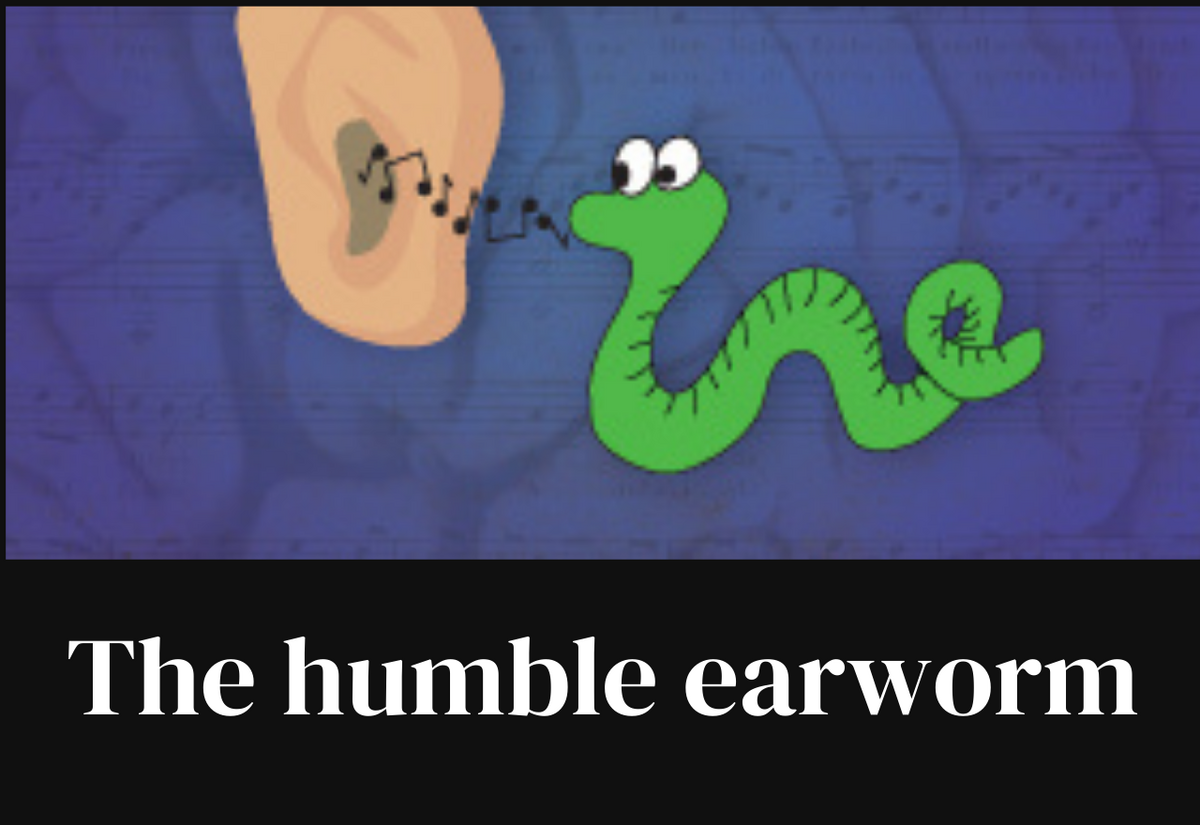The humble earworm
Kimberly Grabham
02 January 2025, 4:00 AM

Let’s look into why songs get stuck in your head
I will be at work listening to the radio, and in the opening notes of a song, I will lament; this song is going to get stuck in my head.
Ah, the humble earworm; our little musical companion on perpetual repeat.
The word earworm comes from the German word Ohrwurm, which means a musical itch.
Iconic band Queen's 'We Will Rock You', 'Bohemian Rhapsody' and 'We Are the Champions' have been identified as very popular earworms.
There are particular tuneful features that make a song more likely to become an earworm.
Aspects include if the piece is repetitive, if there is a longer duration of certain notes, if intervals between the notes are smaller.
What usually invites a song to live rent free in my head for the next day or more usually is the annoyance value of the piece, if it has weird words, or if it elicits a certain nostalgia.
Over time, my most noted earworms are ‘Billy, don’t be a Hero’, ‘The Man Who Shot Liberty Valance,’ a slew of Justin Bieber songs, and other tunes which I can either sing in my head annoyingly enunciating words, or out loud at home, annoying my children.
It’s been discovered 90 percent of people experience this phenomenon, and for about a third of them, it’s annoying.
An earworm is a looped segment of music that’s usually about 20 seconds long which inevitably comes into your awareness and keeps playing on repeat.
Also, songs which activate an emotion, or songs associated with a particular memory, can often be the ones that get stuck in your head.
This is entirely true for me; the annoying songs and songs from childhood are signing the imaginary lease for my brain.
Connections in our brains involving these regions get “stuck,” resulting in an automatic playing out of musical memories.
Some research suggests that people who have difficulty with working memory, like those suffering from attention-deficit disorder, may experience earworms less, while people with obsessive-compulsive disorder, where there are these loops that play over involuntarily in their heads, may be more prone to earworms.
It’s also important to remember that music is universal across all cultures.
Music, including some pre-verbal or simple aspects of it, is involved in our prehistory and our evolution in terms of things like changes of pitch that are necessary for communicating emotion, or just communicating in general.
And music was used together with rhyming before the written word in many cultures to help people remember oral histories.
Our brains evolved to remember these associations and these snippets.
To get rid of an earworm you can try distraction, engaging in another thing that will require the use of some of these brain regions and circuits and functions so that you’re taking them literally in another direction.
Others advocate more of a mindfulness approach —just let it play out and try not to focus on it too much.
And then some suggest playing actual music, because you can replace what has been stuck in your head with something else.
NEWS
COMMUNITY












